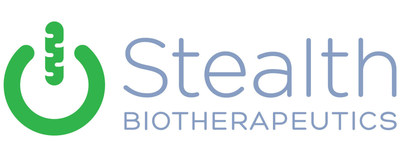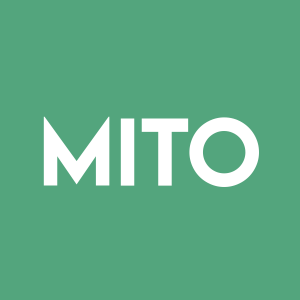Stealth BioTherapeutics Receives Refusal to File Letter from the FDA
Stealth BioTherapeutics Corp (Nasdaq: MITO) received a Refusal to File letter from the FDA concerning its New Drug Application for elamipretide, a treatment for Barth syndrome. The FDA noted that the NDA lacked adequate evidence of effectiveness, citing negative results from the SPIBA-201 Phase 2 trial. While the FDA is open to discussing pathways for demonstrating elamipretide's benefits, the company is evaluating its next steps and plans to provide updates in November. Elamipretide holds various designations from the FDA and EMA for Barth syndrome, which affects fewer than 130 individuals in the U.S.
- Elamipretide has received rare pediatric designation, fast track designation, and orphan drug designation from the FDA.
- Ongoing commitment from the FDA to collaborate with Stealth on demonstrating the drug's efficacy.
- FDA determined the NDA was incomplete for substantive review, affecting the approval timeline.
- SPIBA-201 Phase 2 trial results were negative, which undermines the evidence for effectiveness.
Insights
Analyzing...
BOSTON, Oct. 20, 2021 /PRNewswire/ -- Stealth BioTherapeutics Corp (Nasdaq: MITO), a clinical-stage biotechnology company focused on the discovery, development, and commercialization of novel therapies for diseases involving mitochondrial dysfunction, today announced that it received a Refusal to File letter from the United States Food and Drug Administration (FDA) regarding Stealth's New Drug Application (NDA) for elamipretide, a mitochondria-targeted therapy for the treatment of Barth syndrome.
The FDA determined, upon its preliminary review, that the NDA was not sufficiently complete to permit a substantive review. In the letter, the FDA stated that the NDA does not contain an adequate and well-controlled trial that provides evidence of effectiveness, noting that the SPIBA-201 Phase 2 clinical trial of elamipretide for the treatment of Barth syndrome was negative during the randomized, double-blind portion of the study and that the FDA does not consider the open label extension of the SPIBA-201 trial to be adequate and well-controlled. The FDA reiterated its commitment to work with Stealth on a pathway by which a beneficial effect of elamipretide might be demonstrated within the small patient population.
The letter did not explain why SPIBA-001, the Company's positive Phase 3 trial comparing SPIBA-201 results to a retrospective natural history control and the primary basis for the NDA submission, would not be considered an adequate and well-controlled trial. Stealth is evaluating the appropriate next steps and anticipates providing an update in early November.
Stealth and the FDA have previously discussed the challenges of conducting additional clinical trials in Barth syndrome, which is an ultra-rare genetic disease affecting fewer than 130 individuals in the United States. "We submitted our NDA at the request of the Barth syndrome patient community, which petitioned us and the FDA to gain access to elamipretide and shared with the FDA its tolerance of risk of uncertainty of benefit based on the data from the small clinical trials we were able to conduct in this ultra-rare disease," said Chief Executive Officer Reenie McCarthy. "We deeply value our relationship with the Barth syndrome patient community, and hope to find a way to progress elamipretide as a treatment for Barth syndrome."
Elamipretide was previously granted rare pediatric designation, fast track designation, and orphan drug designation by the FDA, and orphan drug designation by the European Medicines Agency (EMA), for the treatment of Barth syndrome.
About Barth Syndrome
Barth syndrome is an ultra-rare genetic condition characterized by cardiac abnormalities often leading to heart failure and reduced life expectancy, recurrent infections, muscle weakness and delayed growth. Barth syndrome occurs almost exclusively in males and is estimated to affect one in 200,000 to 400,000 individuals worldwide. There are currently no FDA- or EMA-approved therapies for patients with Barth syndrome.
About Stealth
We are a clinical-stage biotechnology company focused on the discovery, development, and commercialization of novel therapies for diseases involving mitochondrial dysfunction. Mitochondria, found in nearly every cell in the body, are the body's main source of energy production and are critical for normal organ function. Dysfunctional mitochondria characterize a number of rare genetic diseases and are involved in many common age-related diseases, typically involving organ systems with high energy demands such as the heart, the eye, and the brain. We believe our lead product candidate, elamipretide, has the potential to treat both rare metabolic cardiomyopathies, such as Barth, Duchenne muscular dystrophy and Friedreich's ataxia, rare mitochondrial diseases entailing nuclear DNA mutations, as well as ophthalmic diseases entailing mitochondrial dysfunction, such as dry age-related macular degeneration and Leber's hereditary optic neuropathy. We are evaluating our second-generation clinical-stage candidate, SBT-272, and our new series of small molecules, SBT-550, for rare neurological disease indications following promising preclinical data. We have optimized our discovery platform to identify novel mitochondria-targeted compounds which may be nominated as therapeutic product candidates or utilized as mitochondria-targeted vectors to deliver other compounds to mitochondria.
Forward-looking Statements
This press release contains forward-looking statements within the meaning of The Private Securities Litigation Reform Act of 1995. Such forward-looking statements include those regarding Stealth BioTherapeutics' plans with respect to the Refusal to File letter; Stealth BioTherapeutics' expectations for elamipretide for the treatment of Barth syndrome; and the potential benefits of elamipretide. Statements that are not historical facts, including statements about Stealth BioTherapeutics' beliefs, plans and expectations, are forward-looking statements. The words "anticipate," "expect," "hope," "plan," "potential," "possible," "will," "believe," "estimate," "intend," "may," "predict," "project," "would" and similar expressions are intended to identify forward-looking statements, although not all forward-looking statements contain these identifying words. Stealth BioTherapeutics may not actually achieve the plans, intentions or expectations disclosed in these forward-looking statements, and you should not place undue reliance on these forward-looking statements. Actual results or events could differ materially from the plans, intentions and expectations disclosed in the forward-looking statements as a result of known and unknown risks, uncertainties and other important factors, including: Stealth BioTherapeutics' ability to obtain additional funding and to continue as a going concern; the impact of the COVID-19 pandemic; the ability to successfully demonstrate the efficacy and safety of Stealth BioTherapeutics' product candidates and future product candidates; the preclinical and clinical results for Stealth BioTherapeutics' product candidates, which may not support further development and marketing approval; the potential advantages of Stealth BioTherapeutics' product candidates; the content and timing of decisions made by the FDA, the EMA or other regulatory authorities, investigational review boards at clinical trial sites and publication review bodies, which may affect the initiation, timing and progress of preclinical studies and clinical trials of Stealth BioTherapeutics product candidates; Stealth BioTherapeutics' ability to obtain and maintain requisite regulatory approvals and to enroll patients in its planned clinical trials; unplanned cash requirements and expenditures; competitive factors; Stealth BioTherapeutics' ability to obtain, maintain and enforce patent and other intellectual property protection for any product candidates it is developing; and general economic and market conditions. These and other risks are described in greater detail under the caption "Risk Factors" included in the Stealth BioTherapeutics' most recent Annual Report on Form 20-F filed with the Securities and Exchange Commission ("SEC"), as well as in any future filings with the SEC. Forward-looking statements represent management's current expectations and are inherently uncertain. Except as required by law, Stealth BioTherapeutics does not undertake any obligation to update forward-looking statements made by us to reflect subsequent events or circumstances.
Investor Relations
Stern Investor Relations
Janhavi Mohite, 212-362-1200
IR@StealthBT.com
![]() View original content to download multimedia:https://www.prnewswire.com/news-releases/stealth-biotherapeutics-receives-refusal-to-file-letter-from-the-fda-301404174.html
View original content to download multimedia:https://www.prnewswire.com/news-releases/stealth-biotherapeutics-receives-refusal-to-file-letter-from-the-fda-301404174.html
SOURCE Stealth BioTherapeutics Inc.








